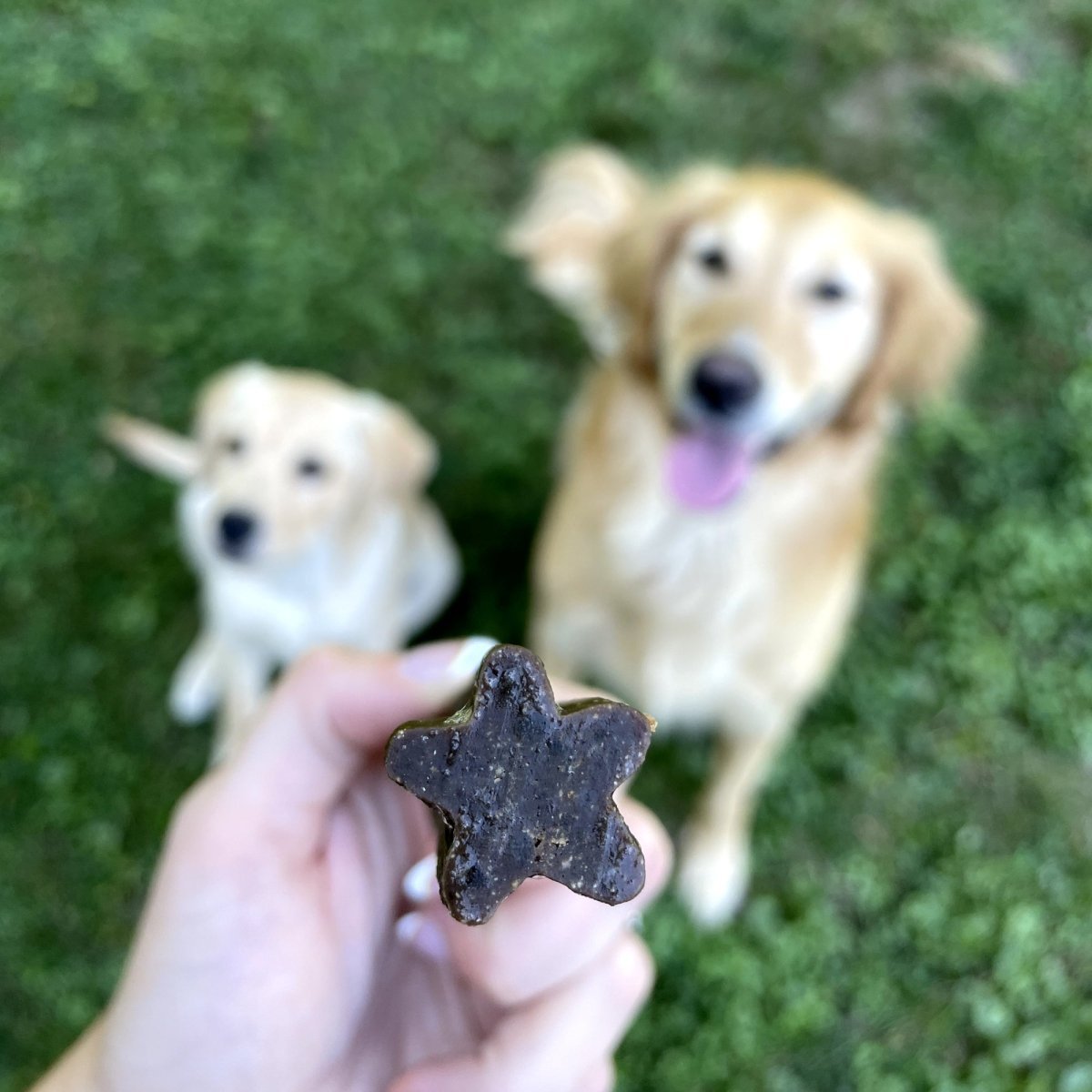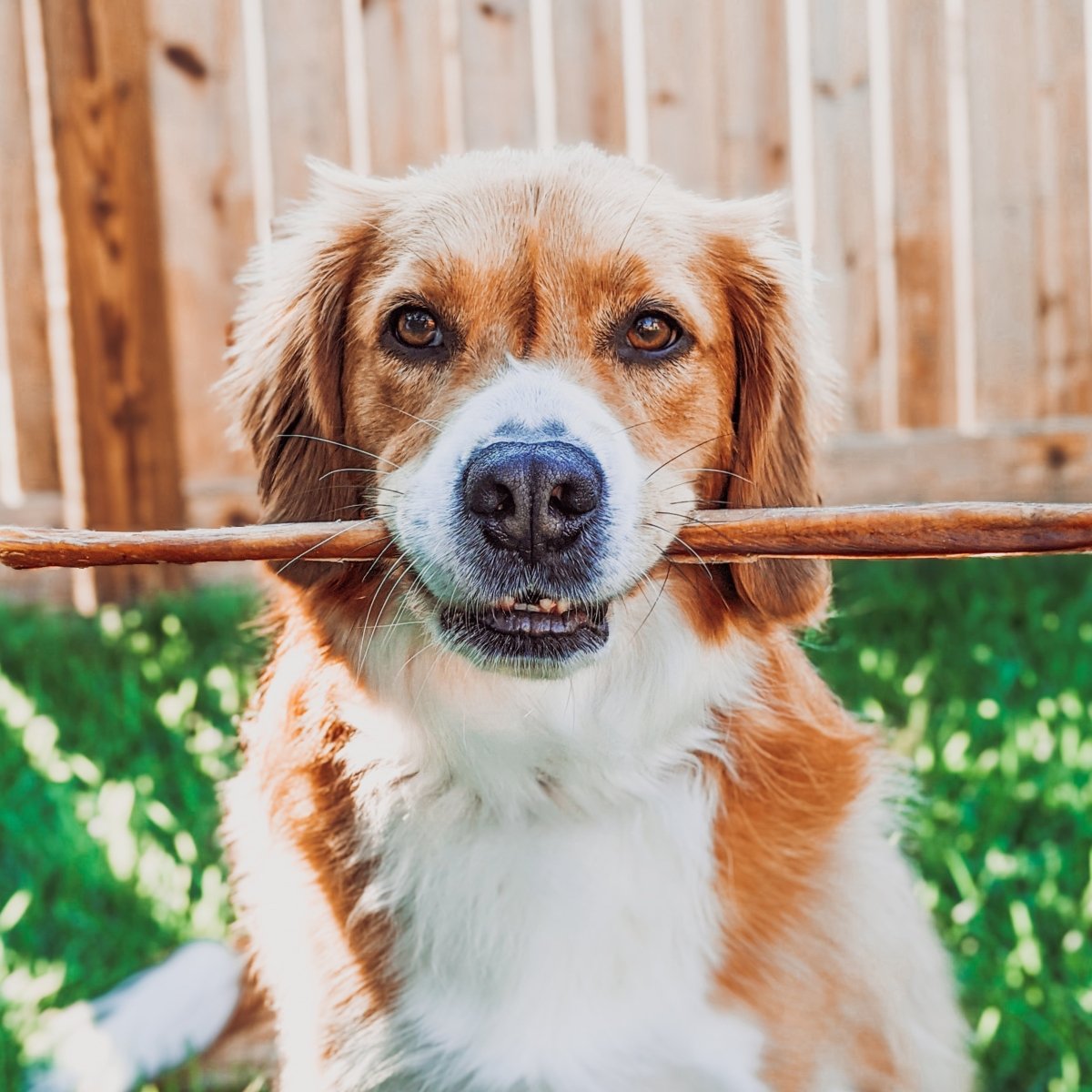
Thanksgiving is a holiday perhaps best known for its food. Roast turkey, mashed potatoes, cranberry sauce, stuffing…the list goes on and on. What if your dog wants to join in on the feast? Not sure if dogs can eat turkey—or anything else from your Thanksgiving table? Read on and think twice before slipping your pup something from your plate this year.
Can dogs eat turkey?
Plain, cooked turkey by itself isn’t inherently harmful to dogs. In fact, it’s a great source of protein and other nutrients. Turkey meat, skin, and fat are all common ingredients in dog food and treats.
However, your Thanksgiving turkey is a different story. Not all turkeys are made equal and your Thanksgiving turkey isn’t the same turkey used in your dog’s food or treats.
According to the American Kennel Club, the butter, herbs, and stuffing that you add to the bird can make it too rich for your pup. This change in diet can cause an upset stomach.
Beware of bones, too! Turkey bones can be a major choking hazard for dogs. Because turkey bones are weaker than other types of bones, it’s easier for them tosplinter. These bone fragments can pierce the tongue, esophagus, stomach, and intestines. Turkey bones can also cause constipation and more severe blockages of your dog’s digestive system.
You might think the drumstick is the perfect Thanksgiving treat for your pup, but unfortunately, it’s not a strong enough bone to be an ideal dog chew. Instead, give your dog a strong, durable dog bone or bully stick to gnaw on instead.
What about the rest of the Thanksgiving feast?
So now you know about turkey, but what about everything else that you’ve prepared? Here’s a quick rundown.
The Thanksgiving don’ts
Happy Thanksgiving! Be grateful for your furry friend—and be careful what you feed him.
Even though it’s a holiday, consistency in your pet’s diet is important. Instead of giving your dog something from your plate, you could treat him with a new chew from Best Bully Sticks.
Comments will be approved before showing up.

Dental chews keep plaque in check and gums strong. Read here to learn about nature's toothbrush!

Single-ingredient dog chews and treats are crafted using only one whole food source!

Check out our guide on different types of chews to help you decide on the best chew for your dog!